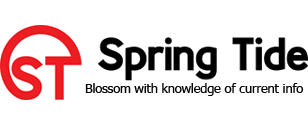
Are you ready to transform your typing skills? Are you tired of getting yelled at by your boss for typos in your emails or struggling to keep up with your friends in online chats? Or do you feel ashamed of always getting the help you need in your office simply just to finish your typing tasks? Look no further – these typing drills are here to save the day.
You see, typing fast and accurate has become a necessity in today’s digital world. Whether you’re a coder, a professional, or simply someone who spends a lot of time on the computer, mastering fast and accurate typing can save you time and frustration. So, let’s learn just how to do that.
The Alphabet Sprint
The Alphabet Sprint is a quick and dynamic exercise that helps you familiarize yourself with the keyboard layout. It focuses on speed while maintaining accuracy, making it perfect for beginners and seasoned typists alike. To start, set a timer for one minute. Your goal? Type the alphabet from A to Z as fast as possible without errors. Sounds easy, right? You might be surprised at how challenging it can be when racing against time. After your first attempt, check the results. Count any mistakes you made along the way. With each round, aim to beat your previous time while reducing those errors.
Word Repetition Drill

On the other hand, this drill focuses on consistency and muscle memory, making it ideal for daily practice. Choose a set of words that challenge you. Commonly used terms or industry-specific jargon work well. Type these words repeatedly without looking at the keyboard. The goal is to build familiarity and speed over time. Track your progress by timing each session. Aim to increase your speed with each attempt while maintaining accuracy. It’s fascinating how quickly improvement can happen when focusing on specific words. This exercise engages both the mind and fingers, reinforcing connections between thought and action.
Backspace-Free Challenge
In this drill, the goal is simple: type continuously without using the backspace key. This drill encourages you to embrace mistakes as part of the process. Instead of correcting errors on the fly, you’ll learn to adapt and keep moving forward. This shift in mindset can significantly enhance your typing speed. So, start by setting a timer for five minutes. Choose a passage or text that challenges you but isn’t overly complicated. As you type, focus on maintaining fluidity rather than perfection. You may stumble initially, but that’s part of the journey. The more comfortable you become with this challenge, the more confident your fingers will feel dancing across the keyboard—mistakes included.

Number Crunching
For accountants, data analysts, or basically those who need to input numbers fast, number crunching is a drill for you, Start with basic arithmetic problems. Set a timer for five minutes and type out addition or multiplication equations as fast as possible. Don’t worry about accuracy at first; the goal is speed. Once you feel comfortable, shift to typing longer strings of numbers without any breaks. For example, try entering sequences like 1234567890 repeatedly or random combinations of digits. Challenge yourself further by incorporating number-based texts from various sources. Use phone books, financial reports, or coding examples that include lots of figures and calculations.
Improving typing speed and accuracy doesn’t have to be a daunting task. So, make these exercises part of your practice regimen, and watch as your skills improve over time. Each drill offers its own unique benefits, helping you develop both speed and precision.






